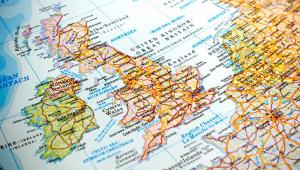By Richard Johnstone | 31 July 2014
MPs have urged the government to restate its commitment to spending at least 2% of gross domestic product on defence, saying that recent violence in the east of Ukraine and the Russian annexation of Crimea was a ‘wake-up call’.
In a report examining the role of Nato, the defence select committee said that, ahead of the military alliance’s summit in Wales in September, ministers should commit to maintaining defence spending at or above the 2% level.
This is the target set for defence spending for members of Nato, and the UK has committed to meeting it in the current spending review period to March 2015. However, budgets have not been yet been set for future years.
The committee, which visited Estonia and Latvia as part of the report, said recent events had encouraged eastern European Nato members to make fresh commitments to reach the target.
This also provided an opportunity for Nato to re-establish its centrality and relevance, and the summit in Newport must address the threat from Russia.
‘Increasing levels of spending amongst European Nato member states and the collective efficiency of such spending must be made a priority of the summit as a demonstration of Nato’s political will and its commitment to collective defence,’ the report stated.
Committee chair Rory Stewart said the risk of attack by Russia on a Nato member state, while still small, was significant.
‘We are not convinced that Nato is ready for this threat,’ he said.
‘Nato has been too complacent about the threat from Russia, and it is not well prepared. Even worse, the nature of Russian tactics is changing fast – including cyber-attacks, information warfare, and the backing of irregular “separatist groups”, combining armed civilians with Russian Special Forces operating without insignia. We have already seen how these tactics have been deployed by Russia and its proxies in Ukraine to destabilise a Nato partner state, annex part of its territory, and paralyse its ability to respond.
‘The UK has the opportunity at the Wales summit to lead the reordering of Nato. It should drive the planning and capabilities now required to counter such threats. It should ensure that Nato begins to train and exercise at a scale to make its deterrence credible. The UK should demonstrate leadership in this area.’
Responding to the report, a government spokesman said that since the crisis in Ukraine began, all Nato allies have contributed to the alliance’s response. ‘As this report recognises, a direct attack by Russia on a Nato state is unlikely, but Russian aggression against Ukraine cannot be ignored,’ he added.
‘In the run up to the Nato summit in Wales, the UK are negotiating across the alliance to ensure Nato can continue to be at the forefront of building stability in a unpredictable world.’
In his response to the report, Defence Secretary Michael Fallon highlighted that the UK has the largest defence budget in the European Union and the second largest in Nato, and said other countries needed to do more.





















